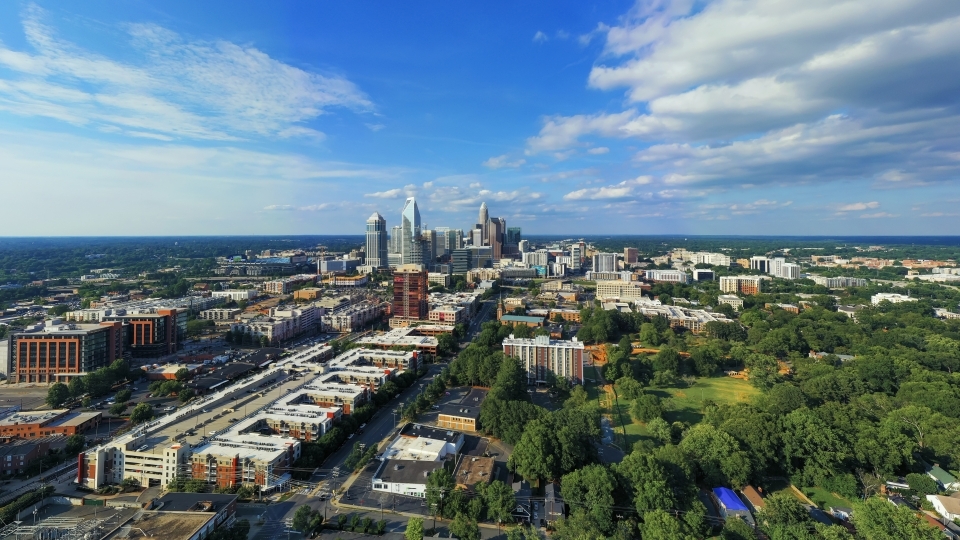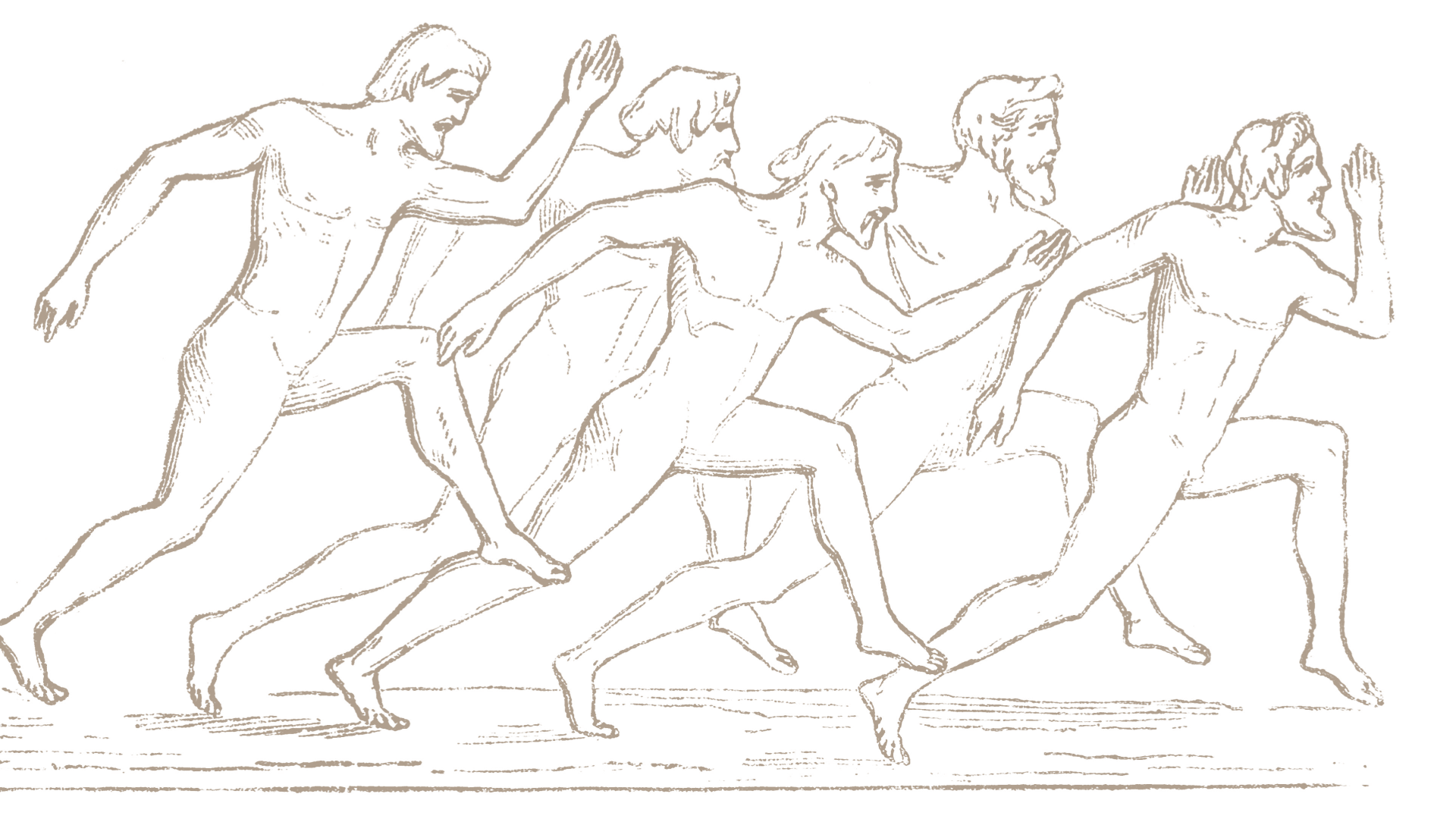Davidson College Delivers Nearly Half-billion Dollar Economic Impact
March 11, 2024
- Author
- Jay Pfeifer

Davidson College boosts the Charlotte area economy by more than $430 million a year, according to a new study.
An expert analysis of Davidson College’s economic impact finds the college’s annual contribution to the Charlotte area and the state of North Carolina reaches nearly $500 million. That economic support, combined with thousands of student community service hours and the social and cultural contributions of our employees and alumni, strengthen the fabric of the Charlotte region and the state.
When that analysis expands and adds the rest of North Carolina, Davidson makes a $490 million impact across the state, according to the study.
The college, known for sending the next generation of leaders into the world, also supports 2,300 jobs statewide, the report said. That includes Davidson employees and jobs that rely on spending by the college and visitors.
And the Wildcat windfall includes more than money. Davidson students devote 73,000 hours to community service, primarily in the Charlotte metro area.
The first-ever study of Davidson’s economic influence, conducted by a global economic development consultant, looked at factors such as the college’s spending on wages, operations and construction. The data reflects the economic power of Davidson’s students, visitors, sports fans and alumni.
“The Charlotte region’s rapid growth provides exceptional opportunities for our students,” said Davidson College President Doug Hicks, “as a thriving place to live during the academic year and with a vast range of internships and career-guiding experiences. This study shows some of the important ways in which Davidson gives back to the region and to the state of North Carolina.”
Insights from the economic study by Econsult Solutions, of Philadelphia, included:
- In the Charlotte region, Davidson's operating and capital expenditures—everything from buying dining hall food to constructing new buildings—support an economic impact of $369 million and approximately 1,650 jobs.
- Athletic and cultural events at Davidson draw approximately 140,000 visitors to the area in a year, supporting $18 million in economic impact in the Charlotte and Lake Norman areas.
- Davidson's economic impact supports $22 million in tax revenue to North Carolina year.
- The salaries of Davidson alumni trend higher than peers because of the value of a Davidson degree, which means they are spending more in the community and paying more taxes.
Direct Impact
“A college or university, especially a nationally ranked and recognized institution like Davidson, is a knowledge enterprise,” said Lee Huang, President of Econsult Solutions. “Neighbors in the region probably appreciate the beautiful campus but may not realize that Davidson is driving millions of dollars in salaries, taxes and spending that roll across the town, the region and the state.”
Davidson's economic influence is highly visible through its impact from operating and capital expenditures, which support $369 million in economic impact. The college serves as a powerful economic driver through wages to its more than 900 staff and faculty members and its spending in areas such as food, building supplies and services ranging from tree trimming to medical technology. Spending by the college and its employees in the region can be seen in sectors such as health care, retail stores and real estate.
Large capital projects such as the construction of the new $55 million Davidson College Stadium, scheduled to open in April, and the 149,000-square-foot E. Craig Wall Jr. Academic Center, completed in 2017, demonstrate some of the economic stimuli the college’s physical footprint provides.
Game Time and Family Time
Davidson is a destination for families, students and alumni from around the world. A steady stream of prospective students visit campus throughout the year. Annual milestone events, such as commencement and class reunions, fill hotels and restaurants with thousands of visitors.
“Whether it’s [family] weekend or students coming back or graduation being a big one, we kind of mark these on our calendar and say, ‘All right, this is the week,’” said Stevie Mangum, a manager at the Pickled Peach café, in Davidson. “We know there are going to be a lot of new faces coming in from out of town and a lot more foot traffic.”
The college draws crowds to academic and athletic contests throughout the year. High-profile speakers, performers and the college’s 21 Division I athletic teams attract spectators from across the country.
“We get it all,” said Nick Lyssikatos, owner of the Brickhouse restaurant, in Davidson. “Game days, family weekends – it’s a huge impact for our restaurant.”
Graduates Who Keep On Giving
Davidson students continue investing in their community after graduation. North Carolina is home to 2,700 Davidson alumni, and about half of those live in the Charlotte area. These talented graduates contribute to the economy and community.
“The Davidson education instills that life of service, that commitment to service, and so it just fits right in,” said Kieth Cockrell, president of Bank of America Charlotte. “They want to make a contribution, not only to the firm that they decide to begin their career with or practice their profession with, but there’s that degree of commitment to serving others that we see coming out of Davidson grads all the time.”
Cockrell’s company competes with Wells Fargo, where Mary Tabb Mack recently retired as CEO of Consumer and Small Business Banking. The pair and their employers have, however, teamed up repeatedly to support civic and nonprofit projects that support the Charlotte area. Both companies also have hired dozens of Davidson graduates over the years, and Mack, a 1984 Davidson alum, emphasized those alums’ capacity to lead, in the office and in the community.
“They’re resilient,” Mack said. “A big part of leadership is having the ability to pivot when necessary, to overcome obstacles, to come back from failure — and learn from it to have an even greater impact.”

Mary Tabb Mack, of Wells Fargo, and Kieth Cockrell, of Bank of America
Using standard methodology, the economic analysis of Davidson estimates that an alum earns an approximately $26,000 premium due to the value that employers put on a Davidson degree. Those wages turn into spending that generates an economic infusion of $46 million in and around Charlotte. That number tops $100 million statewide.
“Davidson’s alumni salary premium benefits the region and state on several levels,” Huang said. “The college’s graduates make more money than their peers, so they pay more in taxes to support the community and state. They spend more at stores, restaurants, doctors and auto repair shops. And these alums’ careers help build strong families, which support stronger neighborhoods and communities.”
More Than Money
Davidson’s commitment to civic leadership and community engagement fosters a culture of responsible citizenship among its students, faculty and staff. Davidson students perform 73,000 hours of community service every year, modeling lives of leadership and service. Students’ recent projects included: introducing targeted Mecklenburg County high school students to college opportunities through field trips to local colleges; developing a database to guide distribution of a free tutoring program for underserved Mecklenburg preschools; and helping develop a data dashboard on housing, healthcare and early childhood education for north Mecklenburg.
The college’s impact, Huang said, pushes well beyond its campus and into the future.
Learn more in the economic study by Econsult Solutions, of Philadelphia.



